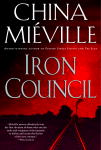Review by Booklist Review
Power, an enrolled Standing Rock Sioux tribal member and award-winning writer, has penned an original saga dramatizing the ways forced colonization impacts three generations of Dakhóta women. She writes sensitively from each young protagonist's viewpoint while also showing how their childhood ordeals affect them and their families over time. In the 1960s, Sissy grows up in Chicago with her loving father and troubled mother, Lillian. We then learn Lillian's history in 1930s North Dakota as she and her sister, Blanche, are sent to an Indian boarding school in Bismarck, where their cruelly forced assimilation into white culture leads to a tragedy from which Lillian can't recover. In the early 1900s, Lillian's mother, Cora, travels to the Carlisle Indian Industrial School in Pennsylvania and survives the attempted stripping of her heritage. Each girl has a doll who feels fully alive to her, serving as her confidant and protector. The final account, where an adult Sissy analyzes the dolls' roles, processes her ancestors' pain, and reclaims their power is beautifully healing and hopeful. This heart-wrenching account of inherited trauma and resilience is perceptively told.
From Booklist, Copyright (c) American Library Association. Used with permission.
Review by Publisher's Weekly Review
In the wrenching latest from Power (Standing Rock Sioux), three generations of Dakhóta women grapple with a legacy of mistreatment by the U.S. government. The story unspools in reverse, beginning in 1960s Chicago with second-grader Lillian Holy Thunder; her erratic, often-angry mother, also named Lillian; and her patient father, Cornelius. Lillian regularly flings herself under the bed to hide from her mother, who dies from falling down the stairs while in a rage. The next section centers on the senior Lillian, who grows up on a reservation in North Dakota with a stable mother and a volatile, alcoholic father in the 1930s until she's forced to attend an Indian boarding school in Bismarck with her older sister Blanche. There, Lillian meets her future husband, Cornelius, with whom she steals happy and mischievous moments until Blanche is poisoned with lye by one of the nuns as punishment for singing a song about Sitting Bull. Blanche dies, and Lillian never recovers from the trauma. In the third section, set in the 1880s, Lillian's mother, Cora, is sent to an infamous Indian boarding school in Pennsylvania, where she is required to burn all personal belongings, cut her hair, and abandon Native culture and traditions. Power's deep knowledge of Indigenous history comes through in keen depictions of the Indian schools, and she illuminates the characters's struggles with generational trauma, which arise as they try to sustain their connections to the past. This story of survival shines brightly. Agent: Rachel Letosky, Cooke McDermid Literary. (Aug.)
(c) Copyright PWxyz, LLC. All rights reserved
Review by Kirkus Book Review
A history of women described by way of their dolls. For her latest novel, Power has chosen an unusual organizing principle: dolls. The book describes three generations of Dakhóta and Lakhóta women--girls, really--from most recent to least, and back again. Each girl had a beloved doll. In the 1960s, Sissy had Ethel, a Black Tiny Thumbelina doll. In the '30s, Lily had Mae, a used Shirley Temple doll. And at the beginning of the century, Cora had Winona, a traditional Dakota doll made from deer hide. Each doll seems to be inhabited by a spirit; each girl seems to hear her speak. Cora, and Lily after her, suffer at the Indian boarding schools they're forced to attend, and while their dolls try to protect them, their powers are limited. Sissy, meanwhile, bears the brunt of her mother's inherited trauma. Power's book contains many evocative moments and even more lyrical passages, such as this one, where she describes the boarding school that Cora and Lily attend: "this strange place, which purposely unravels the fabric of its students to remake them into something they might not recognize." But the premise of the book is saccharine. It might have worked better as a middle-grade title or a young adult novel. In the book's last quarter, Sissy, now an adult writer who has changed her name to Jesse, tries to confront her own and her ancestors' pasts. This is the only part of the novel that contains significant amounts of dialogue. Unfortunately, the dialogue is stilted and two-dimensional, and the book's ending drags on--and on. An occasionally moving book that's been steeped a minute too long in sentimentality. Copyright (c) Kirkus Reviews, used with permission.
Copyright (c) Kirkus Reviews, used with permission.




